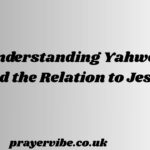Ever caught yourself making quick judgments about others? It’s a natural human tendency that can create barriers between us and those around us. But what does the Bible truly teach about judging others?
Scripture offers profound wisdom that can transform our perspectives and guide us toward more compassionate interactions. Today, we’ll explore 55 Bible verses that illuminate this important topic.
These aren’t just ancient words on a page—they’re living guidance that speaks directly to our daily struggles with judgment, offering a path to greater understanding and deeper relationships.
🙏 Divine Prayer Generator
Select a prayer category to begin
Understanding Judgment in the Bible 📖
Judgment in the Bible goes beyond simply declaring right and wrong. It encompasses discernment, wisdom, and sometimes loving correction—all balanced with mercy and compassion.
Defining Judgment with Biblical Insight
Biblical judgment isn’t about condemnation but discerning truth with love. The Scriptures teach us to “do justice, love kindness, and walk humbly with God” (Micah 6:8). True judgment balances truth with grace, justice with mercy.
Bible Verses about Judging Each Other
Let’s examine seven foundational verses that set the stage for understanding biblical judgment:
Genesis 18:25 (NIV) 🌟 “Far be it from you to do such a thing—to kill the righteous with the wicked, treating the righteous and the wicked alike. Far be it from you! Will not the Judge of all the earth do right?”
This question from Abraham reminds us that ultimate judgment belongs to God alone. We can trust His perfect justice rather than relying on our limited human perspective.
Psalm 98:9 (NIV) ✨ “Let them sing before the Lord, for he comes to judge the earth. He will judge the world in righteousness and the peoples with equity.”
This Psalm celebrates God’s righteous judgment, which is perfectly fair and just—a standard humans should aspire to while recognizing our limitations.
Ecclesiastes 12:14 (NIV) 👁️ “For God will bring every deed into judgment, including every hidden thing, whether it is good or evil.”
Solomon reminds us that God sees everything, even what’s hidden from others. This awareness should guide how we live and how we view others.
Matthew 7:1 (NIV) ⚖️ “Do not judge, or you too will be judged.”
Jesus delivers this clear warning against harsh judgment, reminding us that we will face the same standard we apply to others.
Romans 2:16 (NIV) 📜 “This will take place on the day when God judges people’s secrets through Jesus Christ, as my gospel declares.”
Paul emphasizes that Christ is central to God’s judgment, which examines not just our actions but the secrets of our hearts.
Proverbs 31:9 (NIV) 🗣️ “Speak up and judge fairly; defend the rights of the poor and needy.”
This verse calls us to righteous judgment in defense of those who cannot defend themselves, showing that judgment can be a positive force when used to pursue justice.
John 7:24 (NIV) 👀 “Stop judging by mere appearances, but instead judge correctly.”
Jesus instructs us to move beyond superficial judgments to discern with wisdom and righteousness rather than assumptions.
Through these verses, we begin to understand judgment’s complexity. God’s domain is ultimate judgment, and when we engage in judgment, we must do so with humility, righteousness, and love.
The Righteous Judge 👑
When considering judgment among believers, we must discern what is right while maintaining unity. This requires understanding the distinction between God’s role and ours in judgment.
God’s Role as the Ultimate Judge
Scripture consistently affirms that God alone is the perfect, righteous Judge who sees all and judges with complete justice.
John 5:22 (NIV) 🕊️ “Moreover, the Father judges no one, but has entrusted all judgment to the Son.”
This verse reveals that Jesus has been given authority to judge. As believers, we should look to Christ as our standard for righteous judgment.
Romans 14:10 (NIV) 🤲 “You, then, why do you judge your brother or sister? Or why do you treat them with contempt? For we will all stand before God’s judgment seat.”
Paul cautions against judging fellow believers, reminding us that we all will face God’s judgment—a powerful call to humility and compassion.
Hebrews 10:30 (NIV) ⚡ “For we know him who said, ‘It is mine to avenge; I will repay,’ and again, ‘The Lord will judge his people.'”
This verse emphasizes God’s sovereignty in judgment and warns against taking vengeance into our own hands.
2 Timothy 4:1 (NIV) 👑 “In the presence of God and of Christ Jesus, who will judge the living and the dead, and in view of his appearing and his kingdom, I give you this charge.”
Paul’s solemn reminder of Christ’s coming judgment places our actions in the context of eternal significance.
Psalm 50:6 (NIV) ✨ “And the heavens proclaim his righteousness, for he is a God of justice.”
This psalm celebrates God’s perfect righteousness and justice, which are fundamental to His nature and judgment.
Our Role in Judging Other Believers
While God is the ultimate Judge, Scripture does address our limited role in discernment and accountability within the faith community.
1 Corinthians 4:5 (NIV) ⏳ “Therefore judge nothing before the appointed time; wait until the Lord comes. He will bring to light what is hidden in darkness and will expose the motives of the heart. At that time each will receive their praise from God.”
Paul advises against premature judgment, acknowledging that only God can truly see and judge the heart’s motives.
1 Corinthians 5:12-13 (NIV) 🏛️ “What business is it of mine to judge those outside the church? Are you not to judge those inside? God will judge those outside. ‘Expel the wicked person from among you.'”
Paul distinguishes between judging believers and non-believers, suggesting there is a place for accountability within the church community.
The Difference Between Righteous Judgment and Hypocrisy
Righteous judgment requires self-awareness and grace, understanding that we all need God’s mercy.
James 4:12 (NIV) 📜 “There is only one Lawgiver and Judge, the one who is able to save and destroy. But you—who are you to judge your neighbor?”
James challenges us to consider our position before judging others, reminding us of God’s sovereignty and our limitations.
Matthew 7:3-5 (NIV) 🪵 “Why do you look at the speck of sawdust in your brother’s eye and pay no attention to the plank in your own eye?… First take the plank out of your own eye, and then you will see clearly to remove the speck from your brother’s eye.”
Jesus addresses hypocrisy directly, urging self-examination before attempting to correct others.
Luke 6:41-42 (NIV) 👁️ “Why do you look at the speck of sawdust in your brother’s eye and pay no attention to the plank in your own eye? How can you say to your brother, ‘Brother, let me take the speck out of your eye,’ when you yourself fail to see the plank in your own eye? You hypocrite, first take the plank out of your own eye, and then you will see clearly to remove the speck from your brother’s eye.”
Jesus emphasizes the importance of addressing our own failings before focusing on others’ shortcomings.
Romans 2:3 (NIV) 🔄 “So when you, a mere human being, pass judgment on them and yet do the same things, do you think you will escape God’s judgment?”
Paul points out the inconsistency of judging others for sins we ourselves commit, reminding us that none can escape God’s judgment.
These verses guide us to judge not out of self-righteousness but with a heart aligned with Christ’s teachings. Our judgment should aim to build up rather than tear down, reflecting God’s redemptive work in us.
Reflect Before You Judge 🪞

Before judging others, Scripture calls us to look inward, examining our motives and the standards we apply to others.
The Measure You Use Will Be Measured to You
Jesus teaches that the standard we use to judge others will be applied to us—a sobering reminder to judge with care and mercy.
Luke 6:42 (NIV) 🔍 “How can you say to your brother, ‘Brother, let me take the speck out of your eye,’ when you yourself fail to see the plank in your own eye? You hypocrite, first take the plank out of your own eye, and then you will see clearly to remove the speck from your brother’s eye.”
Jesus calls for genuine self-examination before attempting to correct others, highlighting that our ability to judge fairly is compromised when we ignore our own faults.
Romans 2:1 (NIV) ⚖️ “You, therefore, have no excuse, you who pass judgment on someone else, for at whatever point you judge another, you are condemning yourself, because you who pass judgment do the same things.”
Paul emphasizes that judging others often means condemning ourselves, as we’re frequently guilty of similar shortcomings.
Matthew 7:2 (NIV) 📏 “For in the same way you judge others, you will be judged, and with the measure you use, it will be measured to you.”
Jesus warns that the standards we apply to others will be applied to us, encouraging fairness and compassion.
James 2:12-13 (NIV) 🕊️ “Speak and act as those who are going to be judged by the law that gives freedom, because judgment without mercy will be shown to anyone who has not been merciful. Mercy triumphs over judgment.”
James reminds us that mercy should triumph over judgment in our interactions with others.
Be Slow to Judge Others
Patience in judgment is a virtue emphasized throughout Scripture. Quick judgments often lead to injustice.
Galatians 6:1 (NIV) 🤲 “Brothers and sisters, if someone is caught in a sin, you who live by the Spirit should restore that person gently. But watch yourselves, or you also may be tempted.”
Paul advises approaching those in sin with gentleness and self-awareness, encouraging patience and care when helping others with their faults.
James 2:13 (NIV) ❤️ “Because judgment without mercy will be shown to anyone who has not been merciful. Mercy triumphs over judgment.”
James emphasizes that mercy should be our default response, as judgment lacking mercy will be judged harshly by God.
Proverbs 18:13 (NIV) 👂 “To answer before listening—that is folly and shame.”
Solomon warns against hasty judgment without fully understanding a situation, reminding us to listen before we speak.
Ecclesiastes 7:9 (NIV) 😤 “Do not be quickly provoked in your spirit, for anger resides in the lap of fools.”
This wisdom teaches us to control our emotions when judging situations, avoiding rash judgments made in anger.
Encouraging Self-Reflection Before Passing Judgment
Scripture consistently guides us toward self-examination before judging others.
Romans 14:13 (NIV) 🛑 “Therefore let us stop passing judgment on one another. Instead, make up your mind not to put any stumbling block or obstacle in the way of a brother or sister.”
Paul encourages believers to focus on building each other up rather than tearing down through judgment.
1 Corinthians 11:31 (NIV) 🔍 “But if we were more discerning with regard to ourselves, we would not come under such judgment.”
Self-discernment can prevent us from falling under judgment, as Paul suggests to the Corinthian church.
2 Corinthians 13:5 (NIV) ⚖️ “Examine yourselves to see whether you are in the faith; test yourselves. Do you not realize that Christ Jesus is in you—unless, of course, you fail the test?”
Paul calls for deep personal examination to ensure our faith is genuine and we aren’t deceiving ourselves.
Psalm 139:23-24 (NIV) 🙏 “Search me, God, and know my heart; test me and know my anxious thoughts. See if there is any offensive way in me, and lead me in the way everlasting.”
David’s prayer models humble self-reflection, asking God to reveal any hidden faults.
Self-reflection leads to greater understanding of our own weaknesses and God’s grace. It shifts our perspective from fault-finding to grace-giving, making us more like Christ who is full of grace and truth.
Love and Judgment ❤️
The Bible consistently teaches that love should be the foundation of all our actions, including how we approach judgment.
Prioritizing Love Over Judgment
Scripture calls us to choose love over judgment, letting love guide our interactions with others.
John 13:34 (NIV) ❤️ “A new command I give you: Love one another. As I have loved you, so you must love one another.”
Jesus’ command is clear and profound—love is not optional but essential to Christian living.
Romans 13:8 (NIV) 🤝 “Owe no one anything, except to love each other, for the one who loves another has fulfilled the law.”
Paul teaches that love fulfills the law, suggesting that when we truly love, we naturally align with God’s commandments.
Galatians 5:14 (NIV) 📜 “For the entire law is fulfilled in keeping this one command: ‘Love your neighbor as yourself.'”
The essence of God’s law is captured in loving others as ourselves—this Golden Rule should guide all judgment.
1 Peter 4:8 (NIV) 🌊 “Above all, love each other deeply, because love covers over a multitude of sins.”
Peter speaks to love’s redemptive power, suggesting that love has the capacity to cover sins through forgiveness and grace.
1 Corinthians 13:4-7 (NIV) 💖 “Love is patient, love is kind. It does not envy, it does not boast, it is not proud. It does not dishonor others, it is not self-seeking, it is not easily angered, it keeps no record of wrongs. Love does not delight in evil but rejoices with the truth. It always protects, always trusts, always hopes, always perseveres.”
Paul’s description of love provides a practical standard for how we should approach others, even in matters of judgment.
Handling Criticism with Grace
Being judged by others is inevitable. How we respond reveals our character and faith.
Ephesians 4:2 (NIV) 🕊️ “Be completely humble and gentle; be patient, bearing with one another in love.”
Paul instructs us to respond to judgment with humility, gentleness, and patience, always wrapped in love.
Colossians 3:14 (NIV) 🎗️ “And over all these virtues put on love, which binds them all together in perfect unity.”
Love is the perfect bond that holds all virtues together. When faced with judgment, responding in love can diffuse conflict and promote unity.
Proverbs 15:1 (NIV) 🗣️ “A gentle answer turns away wrath, but a harsh word stirs up anger.”
Solomon’s wisdom reminds us that responding gently to criticism can defuse tension rather than escalate it.
1 Peter 3:9 (NIV) 🔄 “Do not repay evil with evil or insult with insult. On the contrary, repay evil with blessing, because to this you were called so that you may inherit a blessing.”
Peter encourages responding to harsh judgment with blessing rather than retaliation.
Treating One Another with Love
The call to love is a call to see beyond faults and to foster an atmosphere of grace.
1 Thessalonians 3:12 (NIV) 💓 “May the Lord make your love increase and overflow for each other and for everyone else, just as ours does for you.”
Paul’s prayer for increasing love sets a standard for our interactions with others.
1 John 4:7-12 (NIV) 🌈 “Dear friends, let us love one another, for love comes from God… No one has ever seen God; but if we love one another, God lives in us and his love is made complete in us.”
John links love directly to God’s nature and our relationship with Him. Through love, we reflect God’s presence to the world.
Philippians 2:3-4 (NIV) 🙌 “Do nothing out of selfish ambition or vain conceit. Rather, in humility value others above yourselves, not looking to your own interests but each of you to the interests of the others.”
Paul encourages a humble approach that values others’ interests above our own—a principle that transforms how we judge.
Romans 12:10 (NIV) 👨👩👧👦 “Be devoted to one another in love. Honor one another above yourselves.”
This verse calls for devotion and honor in our relationships, creating a foundation of love that shapes our judgments.
When love is central, judgment takes a different form—one that seeks to restore rather than condemn, to understand rather than alienate. Love becomes the lens through which we view every interaction.
The Wisdom of Restraint 🧠
Wisdom in Scripture often calls for restraint in judgment. Knowing when to judge and when to withhold judgment requires divine guidance.
Wisdom from the Scriptures
The Bible teaches that there are times when it is wise to withhold judgment, recognizing our limited perspective.
Proverbs 18:17 (NIV) ⚖️ “In a lawsuit the first to speak seems right, until someone comes forward and cross-examines.”
This proverb reminds us that first impressions can be misleading, and wisdom requires hearing both sides before making judgments.
Ecclesiastes 3:7 (NIV) ⏱️ “A time to tear and a time to mend, a time to be silent and a time to speak.”
Solomon’s wisdom acknowledges that there are appropriate times for both judgment and restraint—discerning the difference is key.
Proverbs 17:27 (NIV) 🤐 “The one who has knowledge uses words with restraint, and whoever has understanding is even-tempered.”
Knowledge and understanding lead to measured speech and emotional control, essential qualities for righteous judgment.
Isaiah 11:3-4 (NIV) 👁️ “He will not judge by what he sees with his eyes, or decide by what he hears with his ears; but with righteousness he will judge the needy, with justice he will give decisions for the poor of the earth.”
This prophecy about the Messiah describes perfect judgment that goes beyond appearances to the heart of the matter.
A Compilation of Verses Promoting Compassion Over Condemnation
Scripture repeatedly encourages us to choose compassion over harsh judgment, to see others through the lens of mercy.
Luke 6:37 (NIV) 🕊️ “Do not judge, and you will not be judged. Do not condemn, and you will not be condemned. Forgive, and you will be forgiven.”
Jesus clearly directs us away from judgment and condemnation, toward the path of forgiveness.
Romans 14:4 (NIV) 👑 “Who are you to judge someone else’s servant? To their own master, servants stand or fall. And they will stand, for the Lord is able to make them stand.”
Paul reminds us that each person is ultimately accountable to God, not to us—our job is to encourage, not condemn.
1 Corinthians 4:3 (NIV) 🛡️ “I care very little if I am judged by you or by any human court; indeed, I do not even judge myself.”
Paul expresses an attitude of indifference to human judgment, highlighting that ultimate judgment comes from the Lord.
James 5:9 (NIV) 🚪 “Don’t grumble against one another, brothers and sisters, or you will be judged. The Judge is standing at the door!”
James warns against complaining about others, which can be a form of judgment that brings judgment upon ourselves.
Galatians 6:3 (NIV) 🪞 “If anyone thinks they are something when they are not, they deceive themselves.”
This verse speaks to the self-deception that can come with wrongful judgment, reminding us to remain humble.
Proverbs 20:10 (NIV) ⚖️ “Differing weights and differing measures—the Lord detests them both.”
This proverb condemns using double standards in judgment, reminding us to be consistent and fair.
John 8:7 (NIV) 🪨 “When they kept on questioning him, he straightened up and said to them, ‘Let any one of you who is without sin be the first to throw a stone at her.'”
Jesus’ response to those judging the adulterous woman powerfully illustrates grace over condemnation.
Matthew 5:7 (NIV) ❤️ “Blessed are the merciful, for they will be shown mercy.”
Jesus teaches that mercy received is connected to mercy given—a powerful incentive for compassionate judgment.
Colossians 3:12-13 (NIV) 🕊️ “Therefore, as God’s chosen people, holy and dearly loved, clothe yourselves with compassion, kindness, humility, gentleness and patience. Bear with each other and forgive one another if any of you has a grievance against someone. Forgive as the Lord forgave you.”
Paul outlines the virtues that should characterize our interactions, including judgment.
In these passages, we see wisdom in judgment is less about pronouncing verdicts and more about exercising compassion, patience, and humility. It recognizes our limitations and leaves room for God to work in others’ hearts and lives.
Top 5 Bible Verses about Judging Others 🏆

From all we’ve explored, these five verses capture the essence of biblical teaching on judgment:
1. Matthew 7:1-2 (NIV) ⚖️ “Do not judge, or you too will be judged. For in the same way you judge others, you will be judged, and with the measure you use, it will be measured to you.”
Jesus’ succinct command is foundational, warning that the standards we apply to others will be applied to us.
2. Luke 6:37 (NIV) 🕊️ “Do not judge, and you will not be judged. Do not condemn, and you will not be condemned. Forgive, and you will be forgiven.”
This verse echoes the call to abstain from judgment and condemnation, embracing forgiveness instead.
3. Romans 14:10-12 (NIV) 👑 “You, then, why do you judge your brother or sister? Or why do you treat them with contempt? For we will all stand before God’s judgment seat… So then, each of us will give an account of ourselves to God.”
Paul challenges us to consider our own standing before God before passing judgment on others, emphasizing personal accountability.
4. James 4:12 (NIV) 📜 “There is only one Lawgiver and Judge, the one who is able to save and destroy. But you—who are you to judge your neighbor?”
James points to God’s sovereignty, reinforcing that judgment is ultimately God’s domain, not ours.
5. John 7:24 (NIV) 👀 “Stop judging by mere appearances, but instead judge correctly.”
Jesus instructs us to move beyond superficial judgments to discern with wisdom and righteousness.
These verses remind us of the biblical perspective on judging others—highlighting humility, compassion, and awareness of our own fallibility. As we integrate these principles, they can transform how we view and treat those around us.
Conclusion
Our exploration of these 55 Bible verses about judging others reveals God’s heart on this important matter. We’ve discovered that judgment should always be approached with humility, love, and awareness of our own need for grace. We’re reminded that God alone is the righteous Judge, and our judgments should seek to restore rather than condemn.
As we conclude, consider this an invitation to reflect on your attitude toward judgment. May we become people who are slow to judge and quick to love, who see others through the lens of grace that we ourselves have received. May we use Scripture not as a weapon of judgment but as a mirror to refine our own hearts.
Frequently Asked Questions
How should Christians approach judging others according to the Bible?
Christians should judge with righteousness, based on truth and love, always aiming for restoration rather than condemnation.
Can we ever judge others in a positive way?
Yes, when judgment involves gentle correction and accountability from genuine concern for others’ wellbeing.
What is the difference between judging and discerning?
Judging implies a final verdict that may condemn, while discerning means understanding without passing final judgment.
Is it wrong to judge the actions of others if they are clearly wrong?
While recognizing right from wrong is important, approach such situations with humility and love rather than condemnation.
How does love impact our ability to judge according to the Bible?
Love transforms judgment from condemnation to compassionate guidance that builds up rather than tears down.

Daniel Miller is a passionate writer, SEO expert, and blogger, specializing in Bible verses, prayers, and faith-based content at PrayerVibe.







